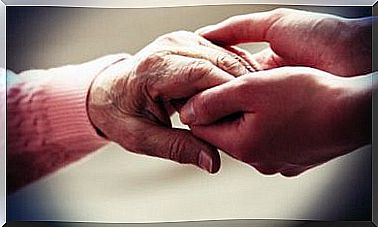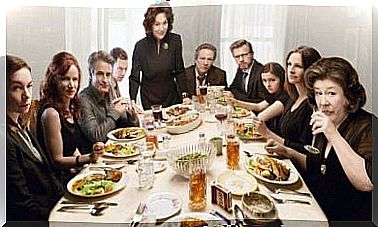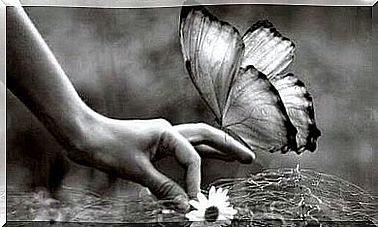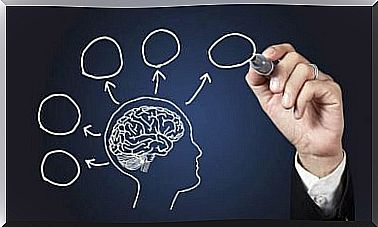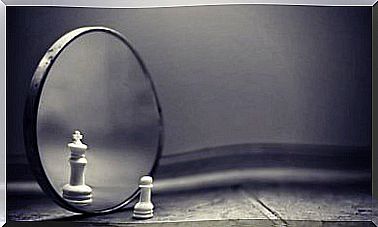Martin Seligman And Positive Psychology

Martin Seligman, one of the pioneers of positive psychology, explains that happiness doesn’t always depend on our social status, religion or physical beauty. Happiness is actually a unique combination of what he called “distinct strengths” such as a sense of humanity, temperance, persistence and the ability to lead a meaningful life. Positive psychology is the area of psychology that studies the foundations of happiness and well-being, supported by human strengths and virtues.
To speak of Martin Seligman is to speak of a new era in psychology. It was in the 1990s when, as president of the American Psychological Association (APA), he gave a lecture to point out something he considered important: psychology needed to take a new step. It was necessary to study, from a scientific point of view, everything that makes human beings happy. In this way, psychology could help people build a more satisfying reality.
Until now, most psychological studies have focused on addressing mental illnesses and their treatments. In fact, Seligman himself is best known for his work on “learned helplessness.”
However, as always happens at some point in our lives, something forces us to reflect deeply on ourselves. That’s what happened to the father of positive psychology, and he tells us about his experience in the book “Optimistic Child”.
One morning, her 6-year-old daughter Nikki was playing in the garden. The girl screamed and ran around, full of enthusiasm and vitality. However, he was making so much noise that his father, Martin Seligman, could not concentrate on his work. He couldn’t help it, ended up yelling and asking her to shut up.
After that, the girl, with an unusual maturity for her age, told him that she felt like screaming and crying. That “scolding” received made her want to cry like when she was younger, however, she would not give in. She knew she was no longer a baby and therefore would control herself.
She also told him that just as she had learned to control her crying, he should also control her bad mood. That way, the two “would be a little more adult”. This little speech by your daughter changed Martin Seligman’s life.
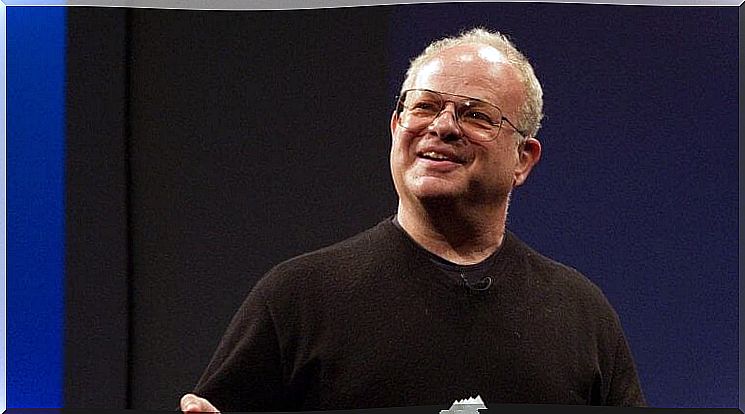
Martin Seligman and positive psychology
Martin Seligman was the pioneer of Positive Psychology, however, we can say that this term was created at the time by Abraham Maslow. Maslow formulated his theories very intuitively and with virtually no empirical and methodological evidence. Therefore, he left this interesting legacy in the hands of a new generation of psychologists who, since the 1990s, have been a reference in the field of the study of happiness.
Those psychologists who collected Maslow’s testimony, such as Seligman, Ed Diener and Mihaly Csikszentmihalyi , went deeper into the study of positive emotions from a scientific and rigorous point of view, investigating the processes, dynamics and situations that can most affect the our health, performance, and overall life satisfaction. Also, something that Martin Seligman emphasized at the time was that these studies should be aimed at teaching people to be happier.
Based on the notions of happiness enunciated by Confucius, Mencius and Aristotle, together with modern theories about motivation, he concluded that happiness can be built by working on three very specific dimensions which are as follows:

1. A pleasant life
Perhaps hearing the term “pleasure” comes to mind a rather hedonistic concept, like a life oriented to simple pleasure and without major aspirations. That’s not what Martin Seligman means about building happiness.
- A pleasant life consists in knowing how to cultivate positive emotions and that they last.
- To achieve this, it is necessary to satisfy, above all, our basic needs, those that are in the first rungs of Maslow’s pyramid: food, security, relationships, recognition…
- Likewise, it is important to find a balance between our past, our present and the future. To find this balance, Seligman proposes the following:
- We should be grateful and know how to forgive what happened in the past.
- It is necessary to know how to deal with the negative emotions of the present, develop mindfulness and find new ways to be happy in the here and now.
- Looking to the future with hope and optimism.
2. Build a good life
Enjoying a good life is actually not as easy as we might think. Happiness is not always synonymous with wealth, power or social success. It’s knowing how to reach our maximum human potential and develop it so that we feel more complete, freer, happier…
Martin Seligman created a ranking system for human strengths together with Dr. Christopher Peterson, an expert in the field of hope and optimism. The purpose of this system was to determine precisely those dimensions that we should work on daily to improve our potential. Are the following:
human virtues
- wisdom and knowledge
- Courage
- love and humanity
- Justice
- Temperance
- Spirituality and Transcendence
personal strengths
- wisdom and knowledge
Curiosity and interest in the world.
Love for knowledge and learning.
Judgment, critical thinking, open mind.
Ingenuity, originality, practical intelligence.
Perspective.
- Courage
Bravery.
Perseverance and effort.
Integrity, honesty, authenticity.
vitality and passion
- Humanity
Love, attachment, ability to love and be loved.
Sympathy, kindness, generosity.
Emotional, personal and social intelligence.
Justice.
Citizenship, civics, loyalty, teamwork.
Sense of justice, equality
Leadership.
- Moderation
Ability to forgive, mercy.
Modesty, humility.
Prudence, discretion, caution.
Self-control, self-regulation.
- Transcendence
Appreciation of beauty and excellence, ability to be surprised.
Gratitude.
Hope, optimism, projection for the future.
Sense of humour.
Spirituality, faith, religious sense.

3. A meaningful life
Meaningful life has an intimate connection with the peak of Abraham Maslow’s pyramid, where we harness our own virtues and strengths to contribute to the happiness of others. We are undoubtedly talking about altruism, this dimension that Martin Seligman defined as the exercise of kindness, as the art of knowing how to elevate ourselves beyond mere personal pleasure to serve those around us.
To conclude, positive psychology today continues to have an important and at the same time inspiring place in our society. However, it can be said that this approach is not without criticism. There is no lack of opposing opinions reminding Seligman that reality is too complex to “fit” this vision of happiness. Labeling it as “positive” implies understanding emotions such as sadness, anger or frustration as “negative” dynamics, denying its transformative potential.
Be that as it may, the figure of Martin Seligman is currently one of the most eminent in the world of psychology, and his latest book “Homo Prospectus” has proven this once again.



